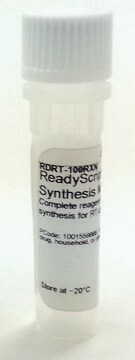R7647
Random Nonamers
for use as primers in cDNA synthesis, 50 μM in H2O
Synonym(s):
Oligodeoxynucleotides
Sign Into View Organizational & Contract Pricing
All Photos(1)
About This Item
UNSPSC Code:
41105500
NACRES:
NA.31
Recommended Products
grade
for molecular biology
form
liquid
usage
0.1 mL sufficient for 100 RT-PCR reactions
concentration
50 μM in H2O
shipped in
wet ice
storage temp.
−20°C
General description
Random Nonamers are random sequences of nine deoxyribonucleotides (9-mers) used to prime mRNA, with or without a poly(A) tail. Random nonamers may be used as universal, non-specific primers.
Application
Random Nonamers are suitable for:
- First-strand cDNA synthesis
- Preparing cDNA libraries (with oligo (dT) primers
- Prepare labeled DNA probes for hybridizations
Features and Benefits
- When preparing cDNA libraries or dealing with situations where specific primers are not suitable, the random nonamers can be combined with anchored oligo (dT)23 primers (Product No. O4387).
- In cases of incomplete or missing sequence information, or when specific primers are not effective, the random nonamers offer a solution for cDNA library preparation.
- The random nonamers′ priming capability at higher temperatures (up to 65°C) is reduced, ensuring that they do not interfere with polymerase chain reaction(PCR) following transcription.
- Randomnonamers can also be used to prepare labeled DNA probes for hybridizationstudiesRandom nonamers serve as alternatives to specific reverse transcription (RT) primers for first-strand synthesis, cDNA library construction, and other applications.
Components
Random Nonamers are provided as a 50 uM solution in water.
Other Notes
For laboratory use only. Not for drug, household, or other uses.
related product
Product No.
Description
Pricing
Storage Class Code
10 - Combustible liquids
WGK
WGK 1
Flash Point(F)
Not applicable
Flash Point(C)
Not applicable
Personal Protective Equipment
dust mask type N95 (US), Eyeshields, Gloves
Certificates of Analysis (COA)
Search for Certificates of Analysis (COA) by entering the products Lot/Batch Number. Lot and Batch Numbers can be found on a product’s label following the words ‘Lot’ or ‘Batch’.
Already Own This Product?
Find documentation for the products that you have recently purchased in the Document Library.
Customers Also Viewed
Sambrook, J., et al.
Molecular Cloning: A Laboratory Manual, 10-10 (1989)
P Goelet et al.
Proceedings of the National Academy of Sciences of the United States of America, 79(19), 5818-5822 (1982-10-01)
Oligonucleotide primers have been used to generate a cDNA library covering the entire tobacco mosaic virus (TMV) RNA sequence. Analysis of these clones has enabled us to complete the viral RNA sequence and to study its variability within a viral
Hsiao-Wen Lin et al.
Journal of neurochemistry, 111(3), 808-818 (2009-08-29)
Interleukin-6 (IL-6) is produced by neurons, astrocytes, and microglia, and elevated levels of IL-6 within the CNS have been documented in multiple neurological disorders including Alzheimer's disease, stroke, epilepsy, attention deficit disorder, cerebral palsy, and multiple sclerosis. Here, we sought
E M Brooks et al.
BioTechniques, 19(5), 806-812 (1995-11-01)
The secondary structure in mRNA is essential for many processes, but it can present a technical problem in making full-length cDNA with reverse transcriptases. Furthermore, different reverse transcriptases have differing abilities to transcribe through regions with secondary structure, which can
Ondrej Hajdusek et al.
Proceedings of the National Academy of Sciences of the United States of America, 106(4), 1033-1038 (2009-01-28)
Ticks are among the most important vectors of a wide range of human and animal diseases. During blood feeding, ticks are exposed to an enormous amount of free iron that must be appropriately used and detoxified. However, the mechanism of
Our team of scientists has experience in all areas of research including Life Science, Material Science, Chemical Synthesis, Chromatography, Analytical and many others.
Contact Technical Service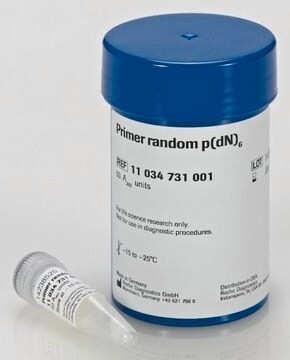


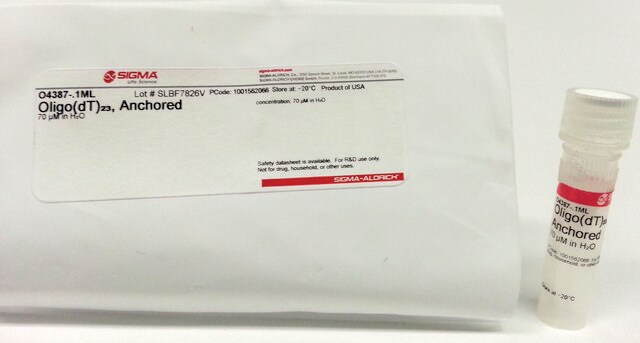
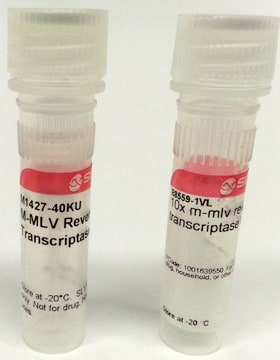




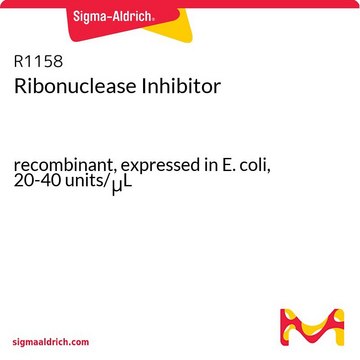
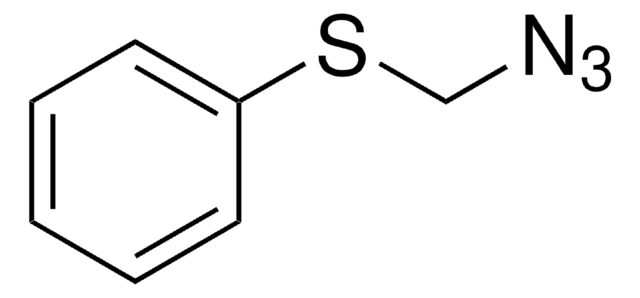
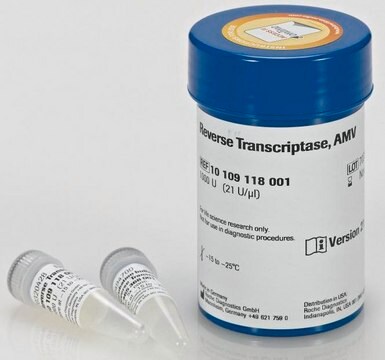
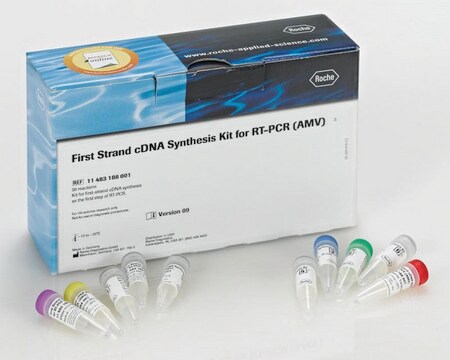
![Enhanced Avian Reverse Transcriptase [eAMV™ RT] For reverse transcription at higher temperatures & rare mRNAs](/deepweb/assets/sigmaaldrich/product/images/496/245/af9bcef6-1474-494b-8fba-32ca0fd56c42/640/af9bcef6-1474-494b-8fba-32ca0fd56c42.jpg)

